A look back at 2018 quota protests and Toriqul’s tale
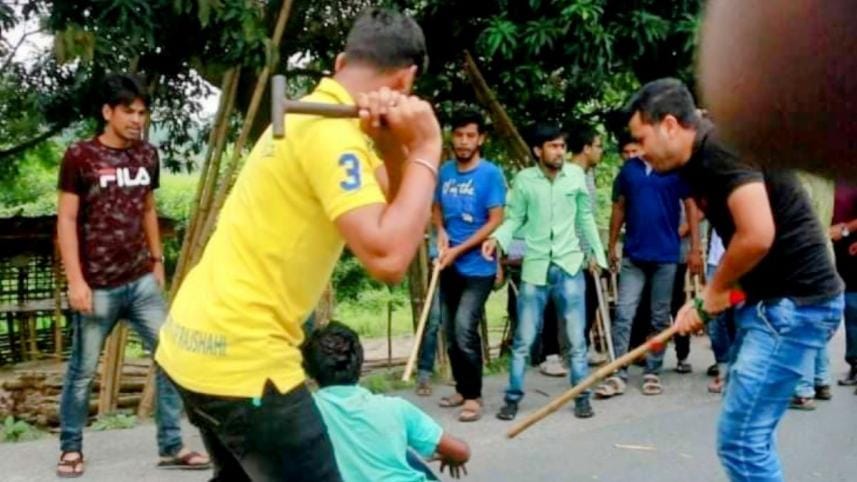
Students from Comilla University were attacked by police during a quota reform demonstration yesterday. At least 10 students, including two journalists, were injured.
This is the first attack on students in this year's quota-related movement. Right now, thousands of students from colleges and universities across Bangladesh, including the capital, are blocking roads, highways, and railways, demanding the abolition of discriminatory quotas in government jobs. This movement has gained momentum since June when the High Court declared the 2018 notification abolishing the quota system illegal.
During the 2018 movement, police obstruction and attacks by the Bangladesh Chhatra League (BCL) were regular occurrences.
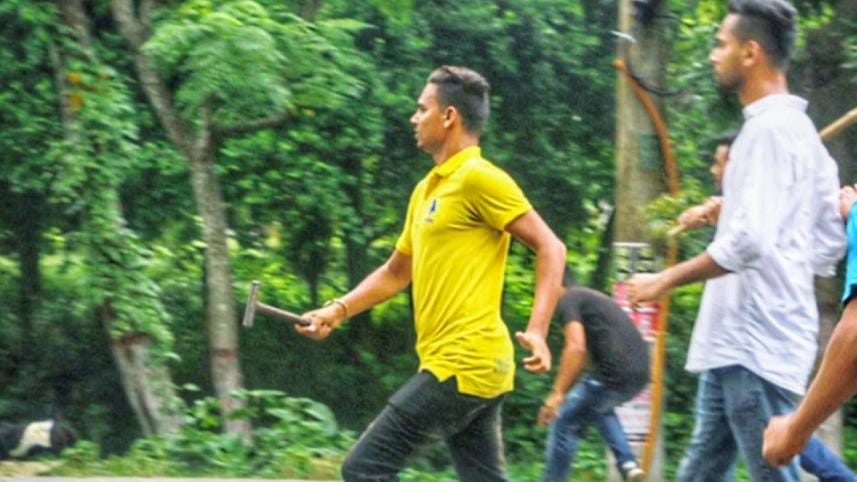
On July 2, 2018, Toriqul Islam Tarek, a student of Islamic Studies at Rajshahi University and a quota reform activist, was attacked by BCL activists during a clash.
Students at Rajshahi University, like those across the country, were protesting in February 2018 for quota reform in government jobs.
To arrange a pre-announced programme, students organised a flag procession in the afternoon. When the procession reached the university's main gate through the Binodpur area, BCL activists, who were already present there, attacked with locally-made weapons.
Eleven students, including Masud Monnaf, the convener of the Chhatra Odhikar Parishad's RU unit, were injured. While many managed to escape, Toriqul fell on the road. He was beaten indiscriminately with sticks, rods, and hammers in the presence of the police. The attack stopped only at the request of some journalists and senior BCL leaders present.
Severely injured, Toriqul was taken to Rajshahi Medical College Hospital for treatment. Images and videos of the attack quickly spread across the country. Quota reform activists then burst into protest across the country.
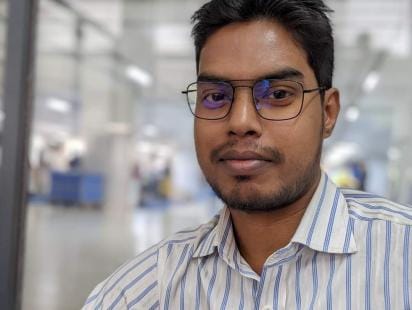
The Daily Star later published photos of Toriqul being beaten with hammers and sticks. The newspaper identified and published pictures of 11 attackers, 10 of whom were active BCL members from the RU unit.
The news, with police claims, wrote that "Rajshahi police saw nothing," even though dozens of BCL activists carried out the armed attack in their presence.
At the time, one of the main accused in the hammer attack, BCL leader Abdullah Al Mamun, said he did not regret the attack. He claimed that the students themselves had brought hammers and machetes to the protest. However, a photo published by The Daily Star showed Abdullah Al Mamun attacking students with a hammer.
According to the report, Toriqul was severely injured by the blows of BCL's sticks and hammers. His entire body was swollen from the beatings. X-rays and other tests revealed that Toriqul's right leg and spinal bones were broken. He also suffered severe head injuries and received eight stitches on his head.
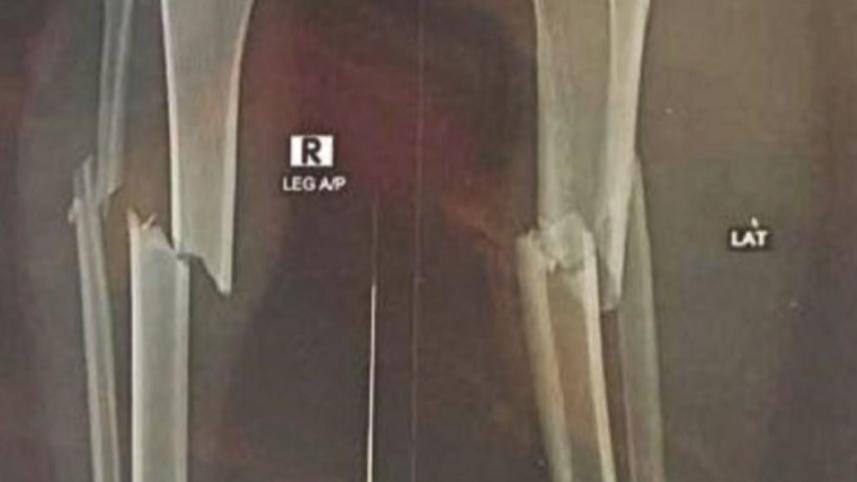
The incident sparked outrage nationwide, with various quarters demanding punishment for the BCL leaders involved.
Despite receiving long-term treatment in the hospital, Toriqul, born in Gobindaganj, Gaibandha, has not fully recovered.
As the movement for quota reform began again six years later, The Daily Star contacted Toriqul.
He has been working in the IT section of a textile company in Dhaka for almost two years.
When asked how he was doing, Toriqul said, "Alhamdulillah, I am fine."
However, when asked about his physical condition, he said that despite several surgeries, he still cannot walk properly, let alone run.
He sometimes experiences unbearable pain that confines him to bed. Toriqul shared that he had applied for several government job positions but did not get any.
"It took almost three years just to stand on my feet after that attack.
"The main concern was how to get treatment; not preparing for job exams."
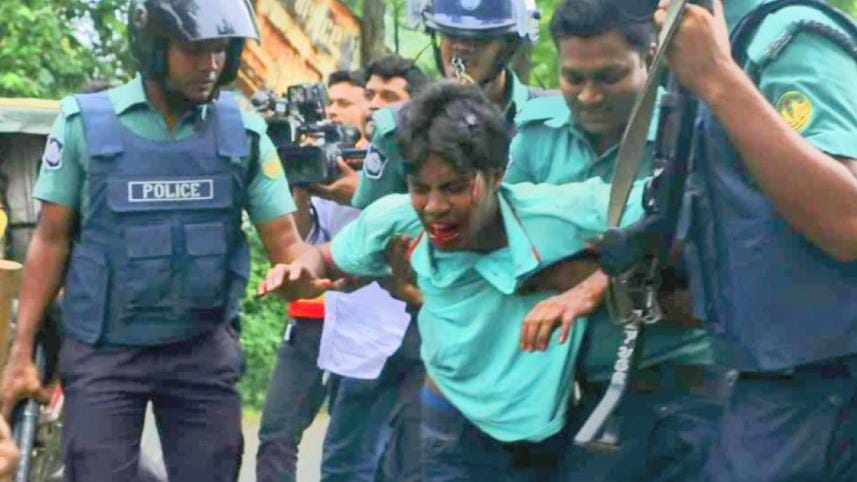
He applied for four to five jobs, including the BCS exam, but could not participate in most exams due to a lack of preparation.
"I've made peace with my fate," said Toriqul.
"We didn't fight against quota solely for ourselves. We fought for the country, for the talented youth, so they wouldn't face discrimination in jobs," he continued.
"I cannot fight anymore, but others will," Toriqul added.
When reminded of the High Court's new verdict declaring illegal the government circular that in 2018 cancelled the quota system, Toriqul told The Daily Star, "We never wanted the complete abolition of the quota system. We wanted reform. But the quota was abolished, and now it has been brought back. This is unacceptable."
He said, quota reform is very urgent in current society.
To build a Smart Bangladesh, talented and qualified individuals must be placed in leadership positions, and merit-based recruitment is essential.
A minimum quota should be kept for underprivileged communities, but the quota system must be reformed, he added.
Despite sufficient evidence of the attack on Toriqul, neither the Rajshahi police nor the university administration took any action against the accused. Instead, the then vice-chancellor of the university, Professor Abdus Sobhan, labelled the protesters as "Shibir" men.



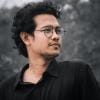
 For all latest news, follow The Daily Star's Google News channel.
For all latest news, follow The Daily Star's Google News channel.
Comments